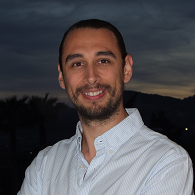Over the last 40 years, the European Union has built a powerful research framework through a variety of research programmes, such as FP1-9, Horizon 2020, and more recently, Horizon Europe, among others [1]. Research programmes are organized into calls that address timely and relevant societal, economic, and cultural challenges in the European landscape, including health care, aerospace research, agriculture, and automotive industry, to name a few. And, of course, addressing open challenges regarding IT and digital transformation has been one of the key areas of this European research strategy right from its inception. It is important to note that European research projects provide unique opportunities for academic institutions, companies, and startups to team up and work together towards a shared objective and a concrete set of outcomes that, in general, are open and accessible to the public. This clearly aligns with the spirit of open-source projects like Pravega.
Recently, Pravega has been included as part of the architecture of two new European research projects: NEARDATA (101092644) and CLOUDSKIN (101092646). In these projects, we collaborate with strong partners in the European ecosystem, including IBM, Imperial College London, Technical University of Dresden, European Molecular Biology Laboratory, and Barcelona Supercomputing Center, among others:
- NEARDATA: This project focuses on the efficient and large-scale access to object storage for health-related data analytics, both at the core/cloud and the edge. As you may already know, Pravega has a unique way to move and manage data from a long-term storage tier, such as object stores. This makes Pravega a great fit for handling the streaming related use cases in NEARDATA. Among the targeted use cases, we will work with the National Center for Tumor Diseases in Dresden (Germany). This team of surgeons and data scientists focus on computer-assisted surgery. One of their goals is to help surgeons minimizing errors during surgeries via applying augmented reality to real-time surgery video. Besides, the video of surgeries may be used in an offline fashion to train AI/ML algorithms. We will work with National Center for Tumor Diseases to meet these requirements by exploiting Pravega as a substrate for storing and serving real-time and batch video data with high performance.
- CLOUDSKIN: This project aims at designing a cognitive cloud continuum platform to fully exploit the available Cloud-edge heterogeneous resources, finding the “sweet spot” between the cloud and the edge, and smartly adapting to changes in application behavior via AI. For Pravega, we will work on making it more “edge-friendly” and able to operate flexibly across heterogeneous infrastructures. Apart from video analytics use cases, in this project we will also focus on automotive and smart agriculture use cases in which resources may be distributed across edge nodes and core/cloud infrastructure.
For the next 3 years, we will be working on adding new innovative features to Pravega that can help the use cases of both NEARDATA and CLOUDSKIN. Stay tuned, it will be fun.
References
[1] Wikipedia – Framework Programmes for Research and Technological Development, https://en.wikipedia.org/wiki/Framework_Programmes_for_Research_and_Technological_Development
About the Author

Raúl Gracia is a Senior Principal Research Scientist at DellEMC working on research projects regarding streaming, edge, and data management. He has been part of the Pravega core development team for 5 years. He holds a M.Sc. in Computer Engineering and Security (2011) and a Ph.D. in Computer Engineering (2015) from Universitat Rovira i Virgili (Tarragona, Spain). During his PhD, Raúl has been an intern at IBM Research (Haifa, Israel) and Tel-Aviv University. Raúl is a researcher interested in distributed systems, cloud storage, data analytics and software engineering, with more than 20 papers published in international conferences and journals.
